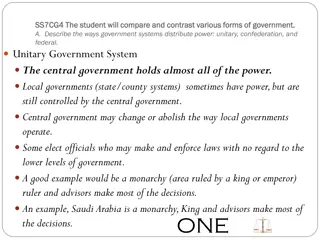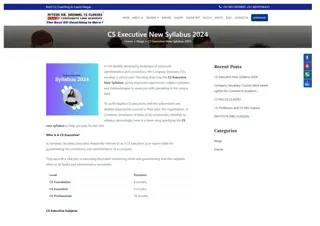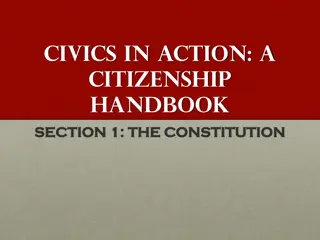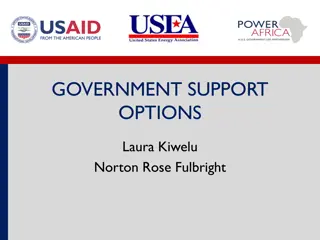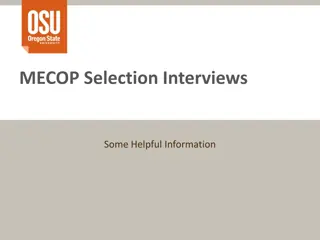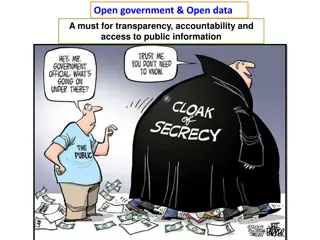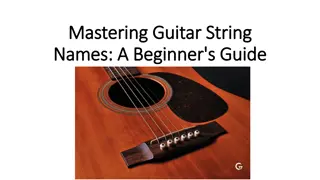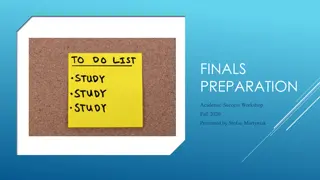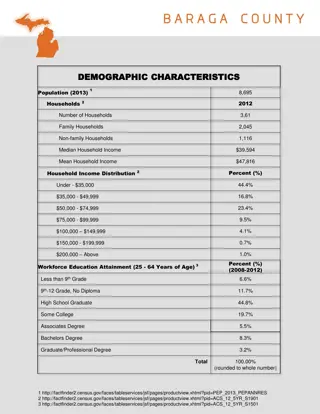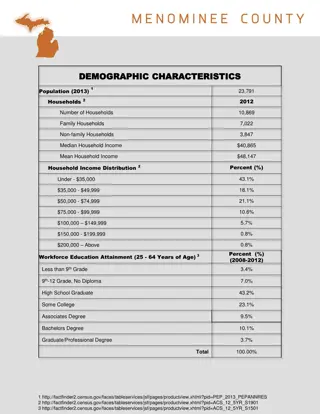Mastering AP Government FRQs: Tips for Success
Understanding the differences between FRQs and essays, grading rubrics, answering questions effectively, deciphering action verbs, and interpreting common task instructions for AP Government exam success.
Download Presentation

Please find below an Image/Link to download the presentation.
The content on the website is provided AS IS for your information and personal use only. It may not be sold, licensed, or shared on other websites without obtaining consent from the author.If you encounter any issues during the download, it is possible that the publisher has removed the file from their server.
You are allowed to download the files provided on this website for personal or commercial use, subject to the condition that they are used lawfully. All files are the property of their respective owners.
The content on the website is provided AS IS for your information and personal use only. It may not be sold, licensed, or shared on other websites without obtaining consent from the author.
E N D
Presentation Transcript
Actually, FRQ and not Essay Writing for AP Government is different than writing for AP US or AP Euro. It is actually a free response question, or FRQ, and not an essay- this means that you do not write an introduction or conclusion- you are not making an argument- but instead you just simply answer the question- hence the free response part of FRQ.
Grading All essays are graded using a grading rubric. Each FRQ is worth 12.5% of your total score, regardless of size. For each piece of correct information supplied, you earn points. Keep writing till you get the points.
AP Essay Tip The key to answering the questions is to DO what you are asked to do. AtDQ!!!! The verbs and quantities tell you what you need to do for each segment of each question.
Understand the Instructions and Action Verbs Mark up your questions. Circle quantities Underline the verbs Students may be asked to list, discuss, describe, explain, analyze, etc.; these are not all identical tasks. Also, the question may call for more than one task, such as both to identify and explain. Students should understand that some tasks are more complex than others. For example, composing a list may not even require a complete sentence, but students may need to write several paragraphs for a satisfactory discussion, including well-developed examples as support, in order to adequately explain some phenomenon. Here are some of the most common action words used in past free- response questions:
What does List or Identify mean? Listing or identifying is a task that requires no more than a simple enumeration of some factors or characteristics. A list does not require any causal explanations. For example, a student might be asked to list or identify three factors that increase political legitimacy. Such a list could be bulleted or numbered, and might include such factors as a written constitution, competitive elections, and transparent institutions.
What does Define mean? A definition requires a student to provide a meaning for a word or concept. Examples may help to demonstrate understanding of the definition. Students may be instructed to note the term's significance as part of the definition.
What does Describe mean? A description involves providing a depiction or portrayal of a phenomenon or its most significant characteristics. Descriptions most often address "what" questions. For example, if students are asked to describe a political cleavage in Mexico, they must demonstrate knowledge that the cleavage has at least two sides by describing what the two sides are.
What does Discuss mean? Discussions generally require that students explore relationships between different concepts or phenomena. Identifying, describing, and explaining could be required tasks involved in writing a satisfactory discussion.
What does Explain mean? An explanation involves the exploration of possible causal relationships. When providing explanations, students should identify and discuss logical connections or causal patterns that exist between or among various political phenomena. BECAUSE
What does Evaluate/Assess mean? An evaluation or assessment involves considering how well something meets a certain standard, and as such generally requires a thesis. It is important to identify the criteria used in the evaluation. If no criteria are explicitly given in the question, students should take care to clearly identify the ones that they choose to employ. Specific examples may be applied to the criteria to support the student's thesis. Evaluation or assessment requires explicit connections between the thesis or argument and the supporting evidence.
What does Compare/Contrast mean? This task requires students to make specific links between two or more concepts, occurrences, or countries. Thus, students cannot simply have a one- paragraph description of how women participate in Iranian politics and a one-paragraph description of how they participate in Nigeria with no connections between the two paragraphs. To correctly compare participation of women in Nigeria and Iran there must be cross paragraph references and development of a comparative structure. The students must provide the connective tissue. They should understand that it is important to note similarities AND differences.
What does Analyze mean? This task usually requires separating a phenomenon into its component parts or characteristics as a way of understanding the whole. An analysis should yield explicit conclusions that are explained or supported by specific evidence and/or well-reasoned arguments.
Evidence Provide the best and clearest pieces of evidence. Do not pick obscure things to demonstrate your trivia mind- go to the obvious answers and give them to the grader. Assume the reader knows very little about the situation and about government. Define your terms, explain concepts, and flesh out ideas.
Guidelines Keep sentences simple and pointed. Use appropriate political science and government terminology and vocabulary words. Write clearly and neatly. Use transition words to link ideas together. Outline before hand, and stick to the outline. Try to get one point per paragraph. Back up ideas with examples. Short essays do not do well try for 1 to 2 pages. Address all the parts of the question!
Strategy: Attack! Answer the question (ATQ!)- attack the question! Don t go after the wrong target- do what the question tells you to do. Understand the verb, the subject, the adjectives, etc- do what the question asks you to do and make sure you attack the correct subject matter.
Strategy: Overkill The Spare Tire strategy If you feel that you have sufficient time, you may add extra answers within your response Incorrect responses will not count against you unless it directly contradicts one of your existing responses Make sure it isn t an extra bad one, or a further elaboration on an earlier point- give them another fully developed point. That way, if one of your points isn t good, you have a backup!
Strategy: Neutral Ideology When you write your essay, adopt a neutral ideology. Although graders are not supposed to be biased, it is human nature to be so. Don t write your essay as a far-right conservative- don t write it as a left-wing communist- write it as a neutral political scientist analyzing something dispassionately but in very exacting language. Avoid personal pronouns.
Strategy: No I Feel Avoid using the statements I feel or I think statements. You are stating facts, or identifying concepts, or explaining how things work. You are not to be speculating, or guessing, or talking about your personal thoughts on government. Don t water down your essay with I feel or I think statements.
Strategy: Paragraph Points Structure your response like the question that way you make it easy on the graders. Respond so that each paragraph is one point, and each paragraph is clearly a separate paragraph. This will help you organize your thoughts- if you want to see how many points you earned, count your paragraphs. This will also help the grader see where you thought you earned the points- you might convince them to give you another point or two just because of the way you organized your essay.
Strategy: Point Grub Identify where the points are and go get them. Before writing the essay, try to imagine what the rubric looks like and where the points are in the essay. Then go get them. If you are just wandering around in your essay, hoping to stumble on points, you re not going to do as well as trying to write for earning points. If you are struggling with the essay, at least you ll know where the points are, and can try to at least get a couple here and there- something is always better than nothing.
Strategy: Positive Lean towards the positive in your essay. The essays are phrased in such a way so that the essays will not be negative- they never ask you bash a branch, or say bad stuff about public officials, or rip into the American public. So don t do that. Be positive, avoid being cynical, and rise above tendencies to say bad stuff. Those comments will rarely earn you points, so don t waste time and effort writing them in this context.
Strategy: Agree with AP Test Do not argue with the premise of the prompt. If the prompt claims something or suggests something, try to understand why this claim or suggestion is true. Whatever you do, don t disagree with the prompt- you are not right, the person who wrote the AP test is. Agree with the prompt, accept the premise, and answer the question.
Strategy: Adding Extra Most likely you will not run out of time for the essay portion of the test. You have 100 minutes to answer 4 essays- that is 25 minutes an essay. In class, you usually finish more quickly due to a preview of the FRQ, but you will get a good sense of what 25 minutes feels like. When you are totally finished, take a look at how much time you have left. Relax for a moment. Then go back into the essay and add to it. This is not about correctly grammar or spelling, although that is nice too. It is about adding to thoughts, elaborating on to your points, or expanding what you were talking about.
Strategy: Rule of Three Write at least three (3) sentences for every point you are going after. This will force you to fully address the question. Force yourself to do this. Even if it feels like you are repeating yourself, just do it. Essays that suck of lesser quality usually try to answer questions and earn points with 1 sentence. Essays that are good usually write 3 or more sentences per point. Be like the good essays.
Strategy: Talk the Talk Part of doing well in a discipline is acquiring the language of that discipline and talking the talk. Talk the talk of AP Government. Use appropriate political science and government terminology and vocabulary words. Sometimes the rubric will be looking for that particular vocabulary word- if you use it, you ll help yourself out and earn more points.
Strategy: Kid Brother If the essay asks you to explain or describe something, do so in a way so that your baby brother can understand what you are talking about. You can assume the grader knows something, but don t assume he will make leaps of logic or connect the dots for you- describe the process logically without skipping steps, explain how something works in a way that your baby brother can understand it, etc.
Strategy: Mind What You Have Learned As the great Yoda once said- Mind what you have learned, save you it can. If you read an article in one of our supplemental readings, bring it up. If you read something in the textbook, bring it up. If you read something about the subject on the internet, bring it up. Include your knowledge in the essay- if you demonstrate that you have in fact read the readings of a college level student in government, it will probably help out your essay in a lot of areas.








